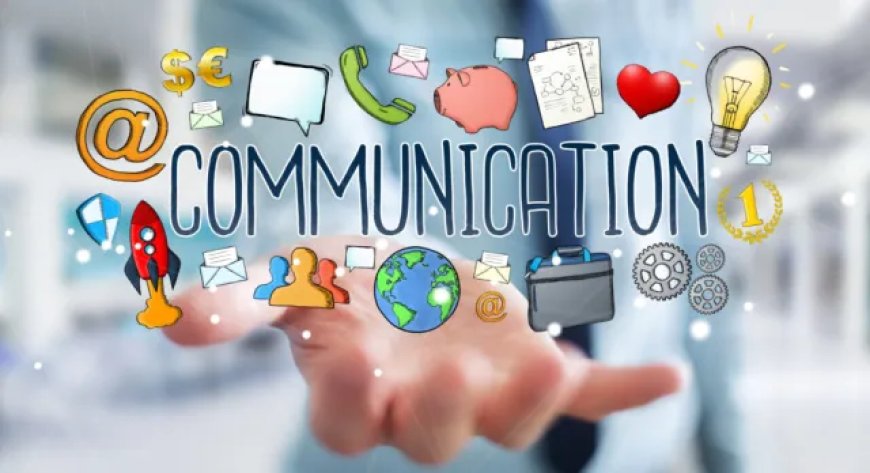How to Improve Business Communication Skills
How to Improve Business Communication Skills

Effective communication is a cornerstone of successful business operations. Whether you’re interacting with colleagues, clients, or stakeholders, strong communication skills can enhance productivity, foster positive relationships, and drive business growth. This comprehensive guide explores various strategies to improve your business communication skills.
1. Understand the Basics of Effective Communication
Key Components:
- Clarity: Ensure your message is clear and easy to understand.
- Conciseness: Keep your communication concise and to the point.
- Tone: Use an appropriate tone that matches the context of your message.
How to Implement:
- Simplify Language: Avoid jargon and use simple language that everyone can understand.
- Stay On Topic: Focus on the main points without unnecessary details.
- Adjust Tone: Match your tone to the situation, whether formal or informal.
2. Develop Active Listening Skills
Importance:
- Understanding: Active listening ensures you fully understand the speaker’s message.
- Empathy: Demonstrates empathy and builds stronger relationships.
Techniques:
- Maintain Eye Contact: Show you’re engaged by maintaining eye contact.
- Avoid Interrupting: Let the speaker finish before you respond.
- Provide Feedback: Summarize what you’ve heard to confirm understanding.
3. Enhance Non-Verbal Communication
Why It Matters:
- Body Language: Non-verbal cues like facial expressions, gestures, and posture can reinforce or contradict your words.
- Tone of Voice: Your tone can convey confidence, concern, enthusiasm, or indifference.
Tips:
- Be Mindful: Pay attention to your body language and facial expressions.
- Practice Positive Body Language: Use open gestures and maintain an upright posture.
- Control Your Tone: Be conscious of your tone and adjust it to suit the message.
4. Improve Written Communication
Importance:
- Clarity and Precision: Written communication needs to be clear and precise to avoid misunderstandings.
- Professionalism: Well-written communication reflects professionalism and competence.
Best Practices:
- Use Correct Grammar and Spelling: Proofread your emails, reports, and other written documents.
- Structure Your Writing: Use headings, bullet points, and short paragraphs for readability.
- Be Direct: Get to the point quickly and avoid unnecessary information.
5. Utilize Technology Effectively
Benefits:
- Efficiency: Technology can streamline communication processes.
- Accessibility: Facilitates communication across different locations and time zones.
Tools:
- Email Management: Use tools like Gmail or Outlook for efficient email management.
- Instant Messaging: Platforms like Slack or Microsoft Teams for real-time communication.
- Video Conferencing: Use Zoom or Google Meet for virtual meetings.
6. Seek Feedback and Continuous Improvement
Why It’s Important:
- Self-Awareness: Feedback helps you understand your strengths and areas for improvement.
- Growth: Continuous improvement enhances your communication skills over time.
How to Get Feedback:
- Ask Directly: Request feedback from colleagues, mentors, and supervisors.
- Observe Reactions: Pay attention to how others respond to your communication.
- Use Surveys: Conduct anonymous surveys to get honest feedback.
7. Adapt to Different Communication Styles
Understanding Diversity:
- Cultural Sensitivity: Be aware of cultural differences that affect communication styles.
- Personality Types: Adapt your approach based on whether someone is introverted, extroverted, analytical, or expressive.
Strategies:
- Be Flexible: Adjust your communication style to match the recipient’s preferences.
- Show Respect: Respect different perspectives and approaches.
- Learn and Adapt: Continuously learn about different communication styles and adapt accordingly.
8. Develop Public Speaking Skills
Importance:
- Confidence: Strong public speaking skills boost your confidence.
- Influence: Effective speaking can inspire and influence others.
Techniques:
- Practice Regularly: Rehearse your presentations and speeches.
- Engage the Audience: Use storytelling and interactive elements to engage your audience.
- Seek Feedback: Get feedback on your speaking style and work on areas of improvement.
9. Enhance Emotional Intelligence (EQ)
Benefits:
- Relationship Management: High EQ helps in managing relationships effectively.
- Conflict Resolution: Helps in resolving conflicts calmly and efficiently.
Ways to Improve EQ:
- Self-Awareness: Reflect on your emotions and how they affect your communication.
- Empathy: Practice empathy by trying to understand others’ perspectives.
- Regulate Emotions: Learn to manage your emotions, especially in stressful situations.
10. Participate in Workshops and Training
Advantages:
- Skill Enhancement: Workshops provide practical skills and knowledge.
- Networking: Opportunities to connect with other professionals and learn from their experiences.
Where to Find Training:
- Online Courses: Platforms like Coursera and LinkedIn Learning offer communication courses.
- Local Workshops: Look for local workshops and seminars on communication skills.
- Professional Development Programs: Many companies offer in-house training programs.
Conclusion
Improving your business communication skills is a continuous process that requires self-awareness, practice, and a willingness to learn. By focusing on clarity, active listening, non-verbal cues, and leveraging technology, you can enhance your ability to communicate effectively. Seeking feedback, adapting to different styles, and participating in training will further develop your skills, leading to better relationships and greater success in your professional endeavors.
What's Your Reaction?















































































